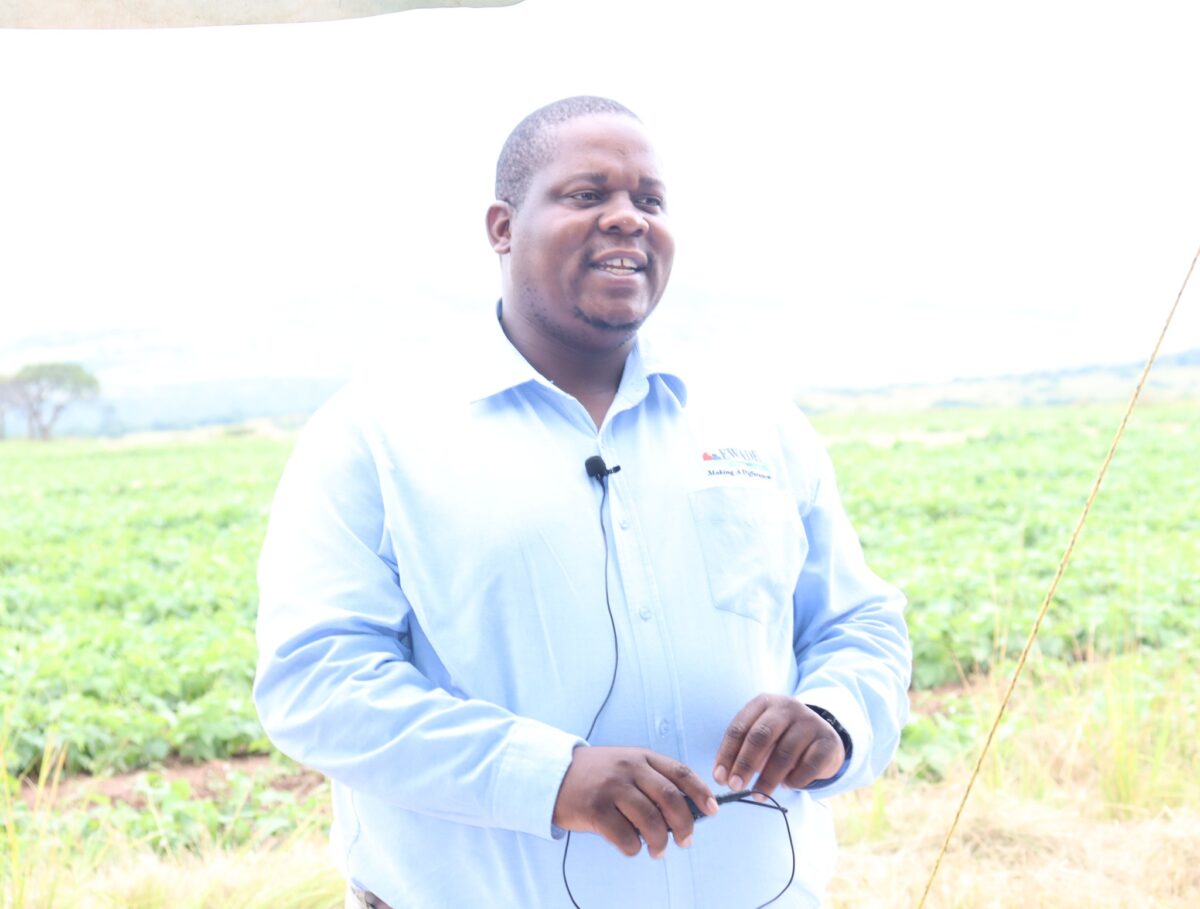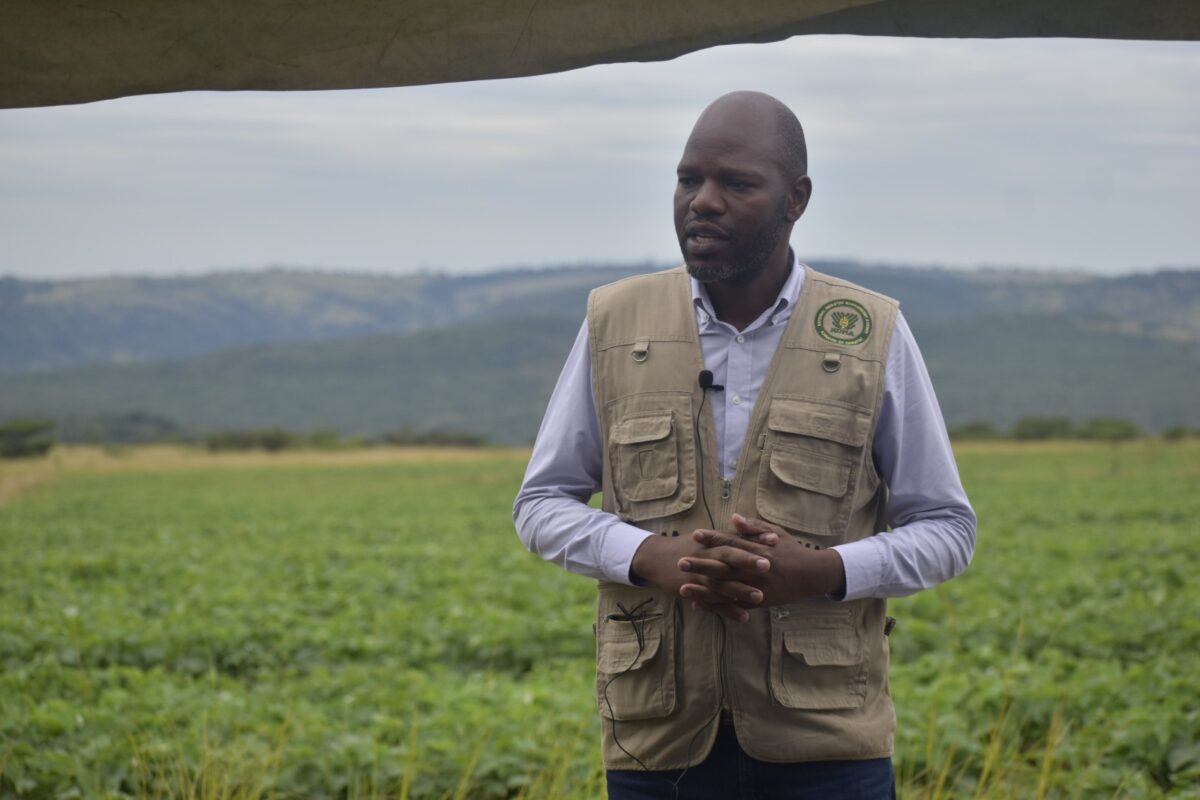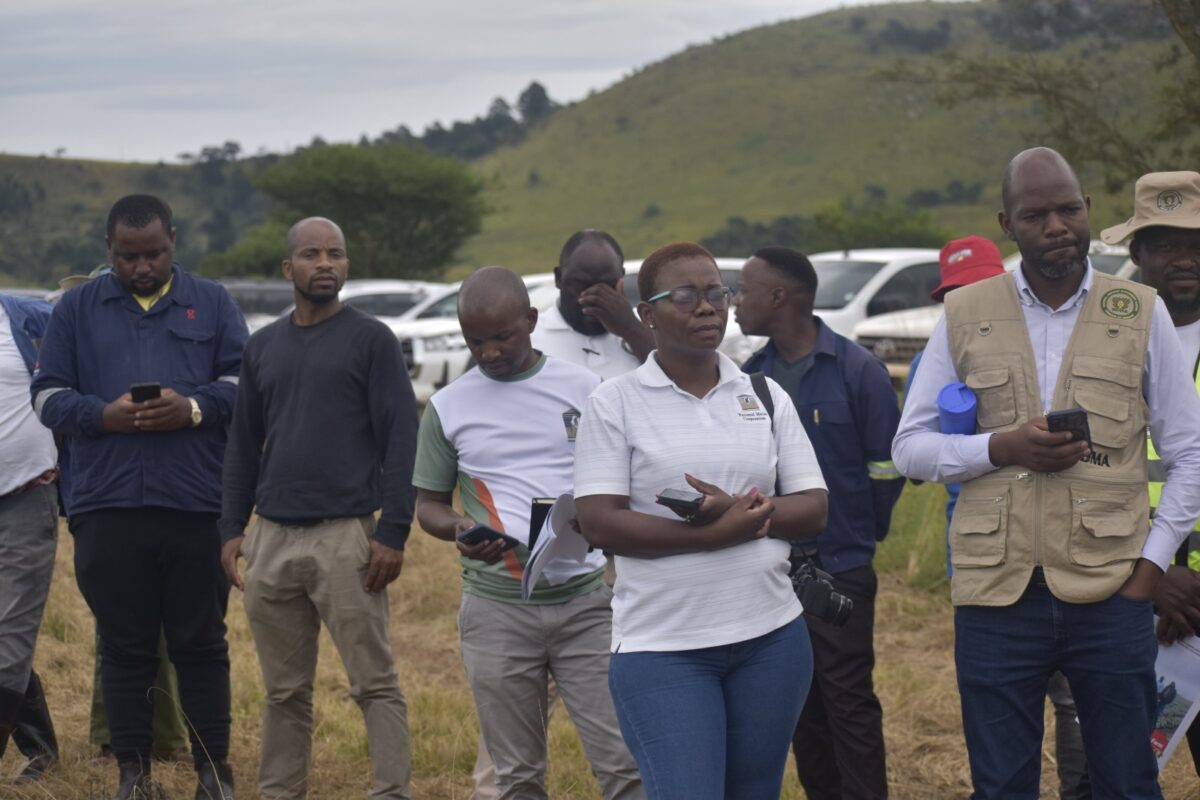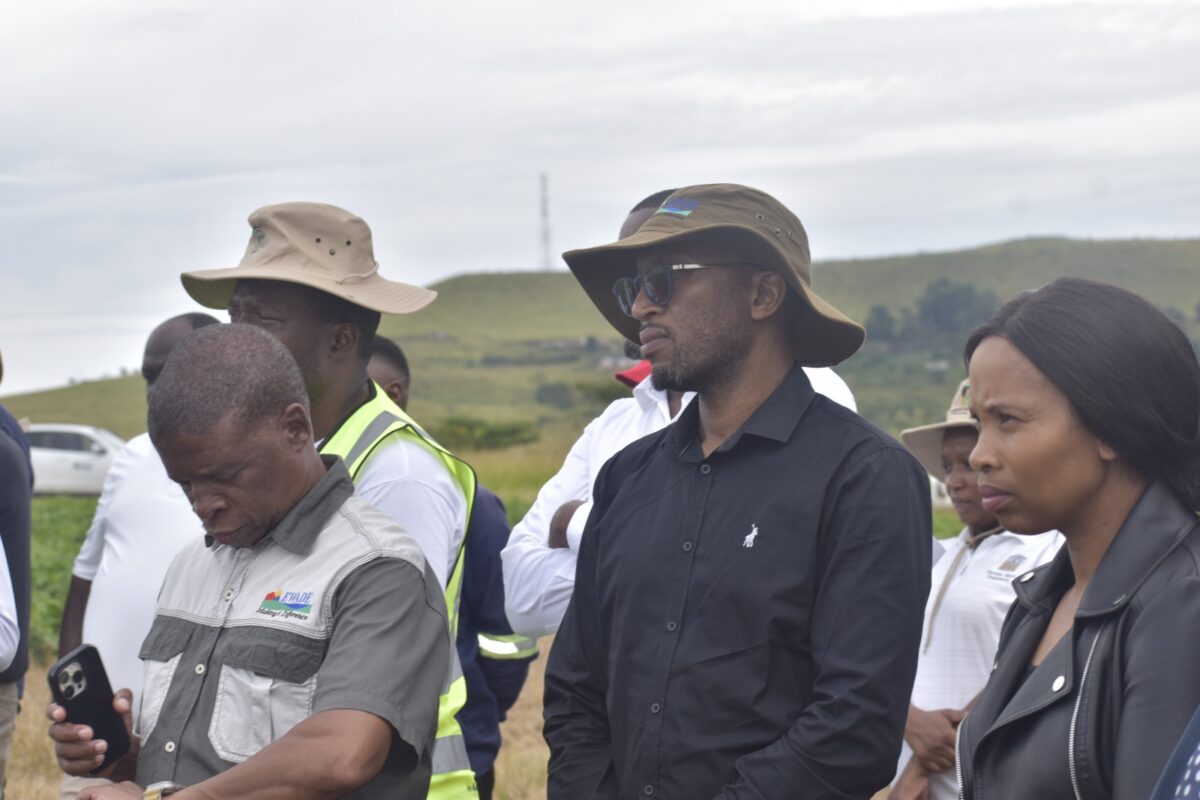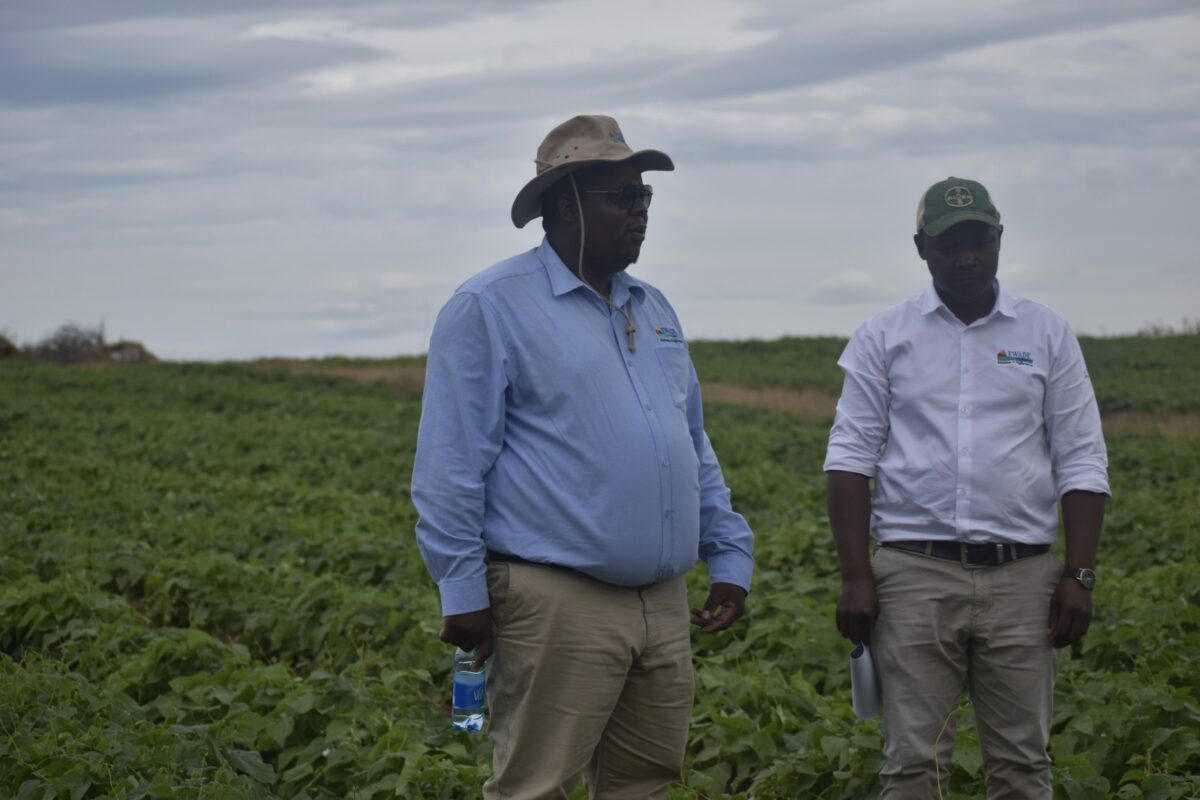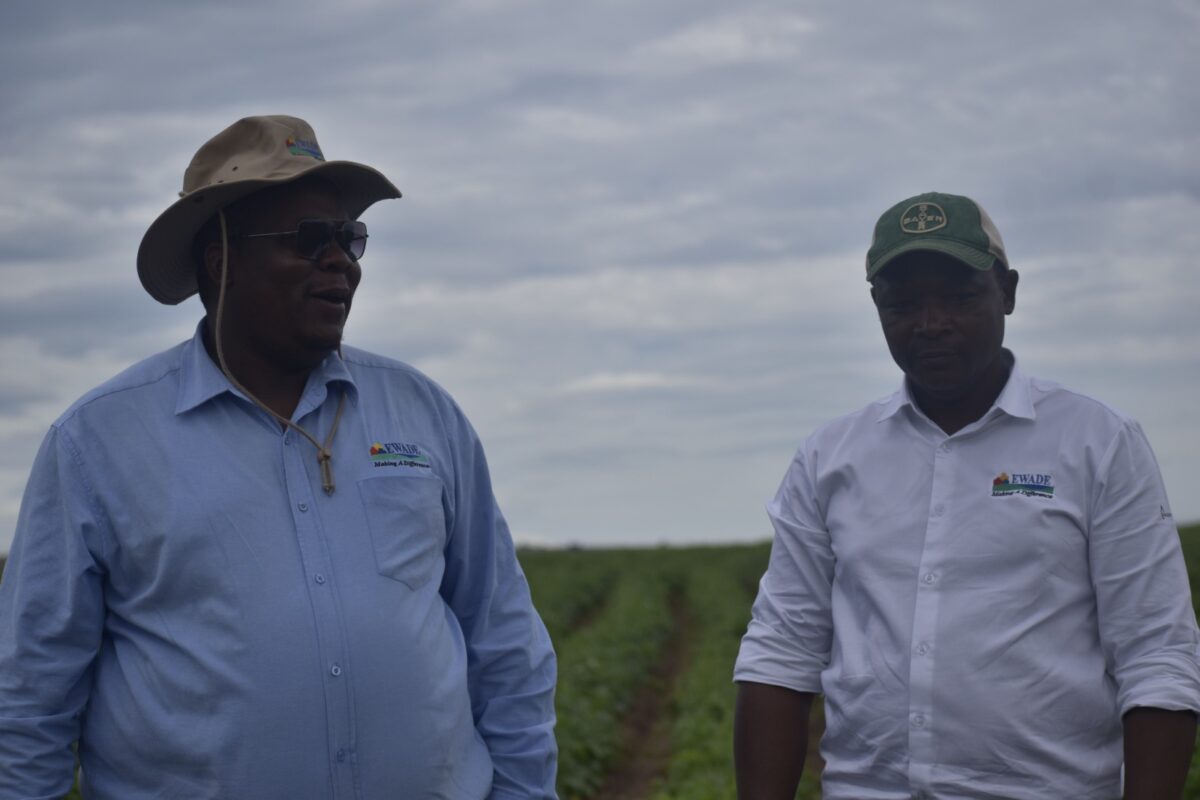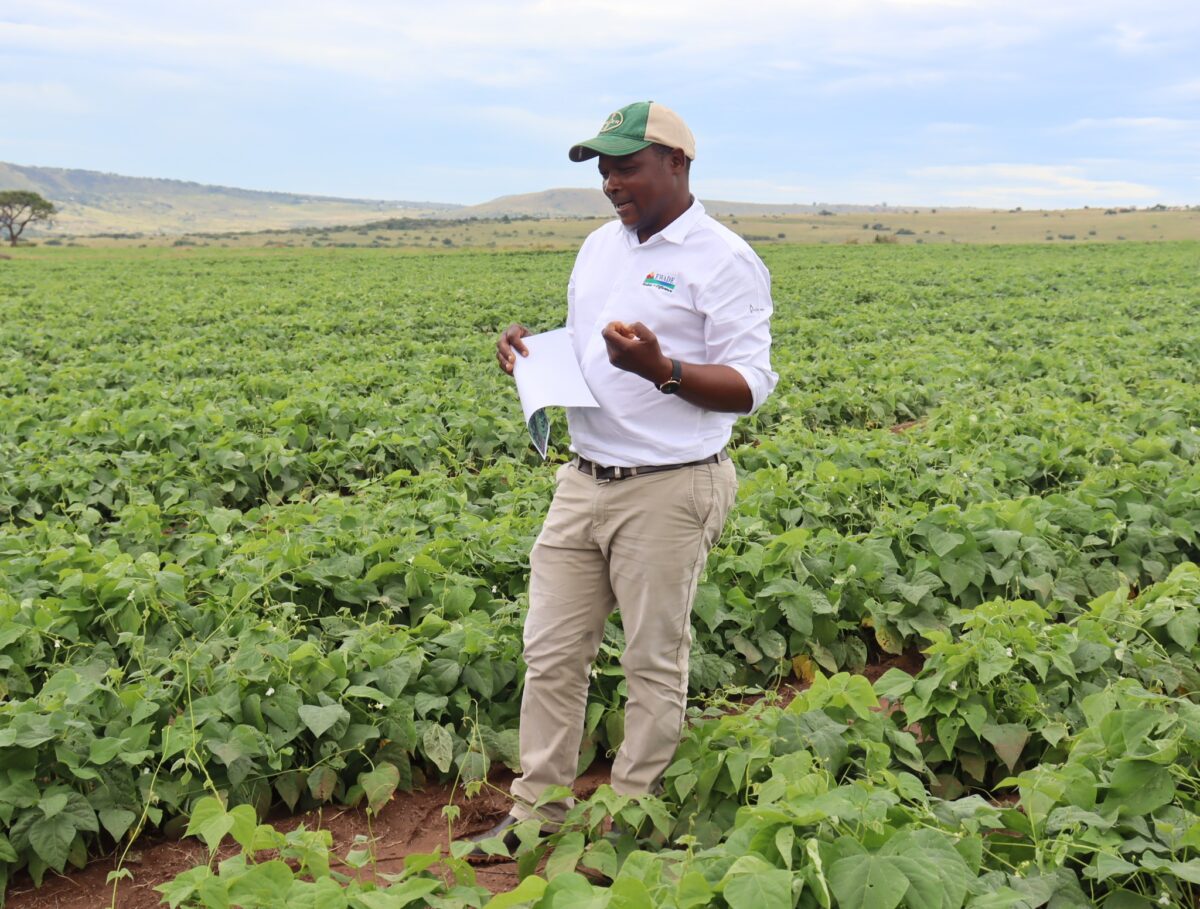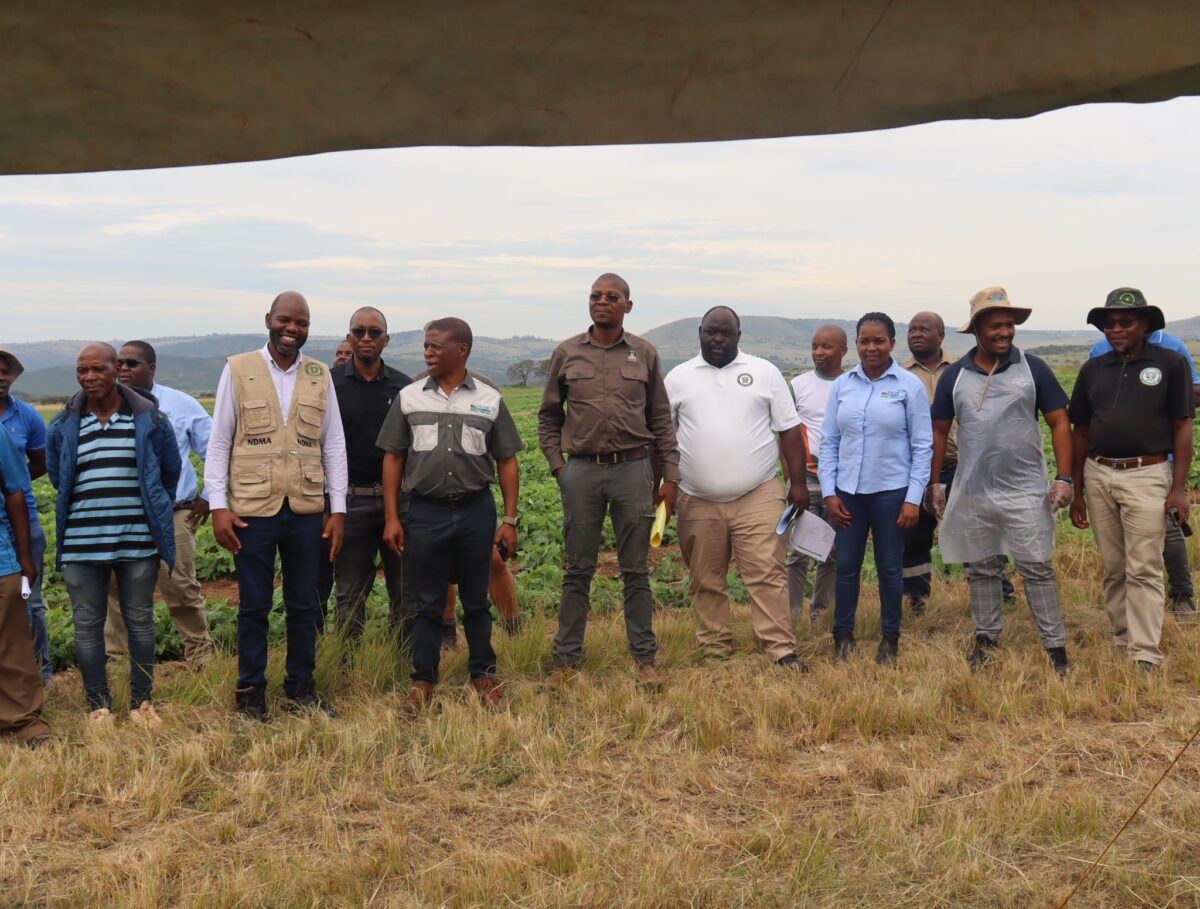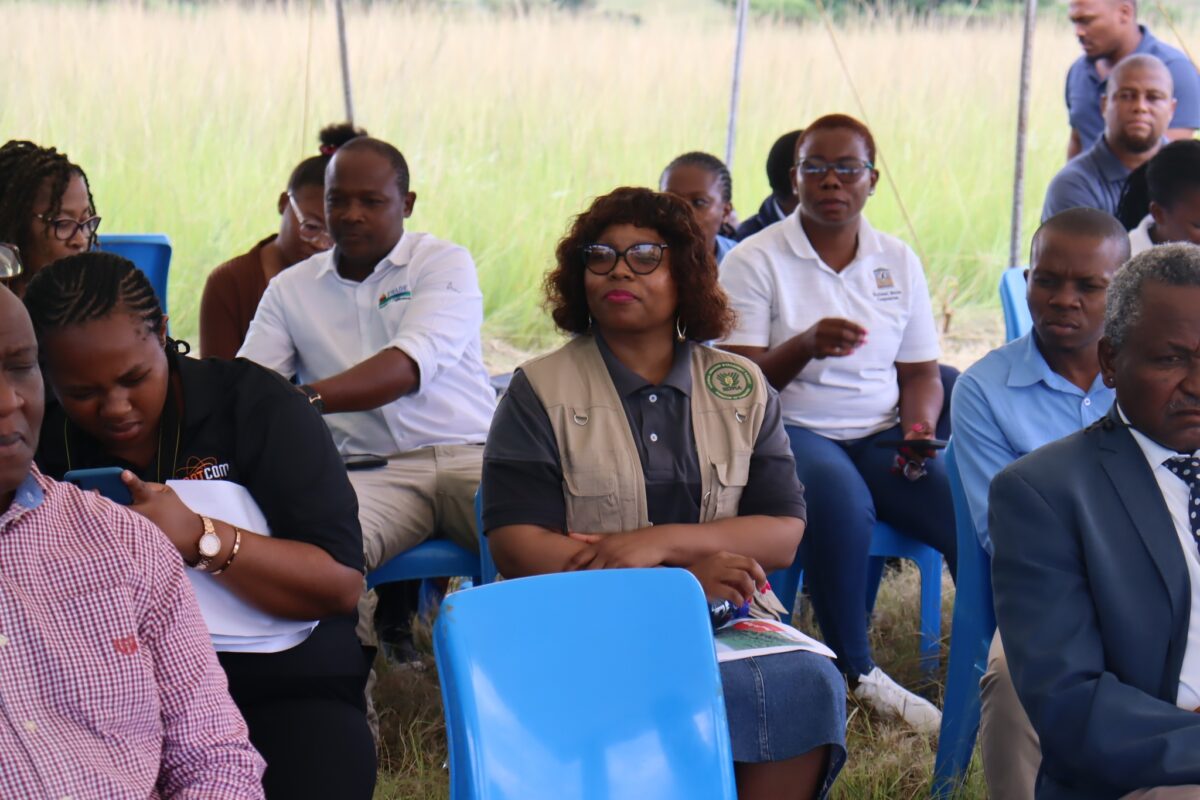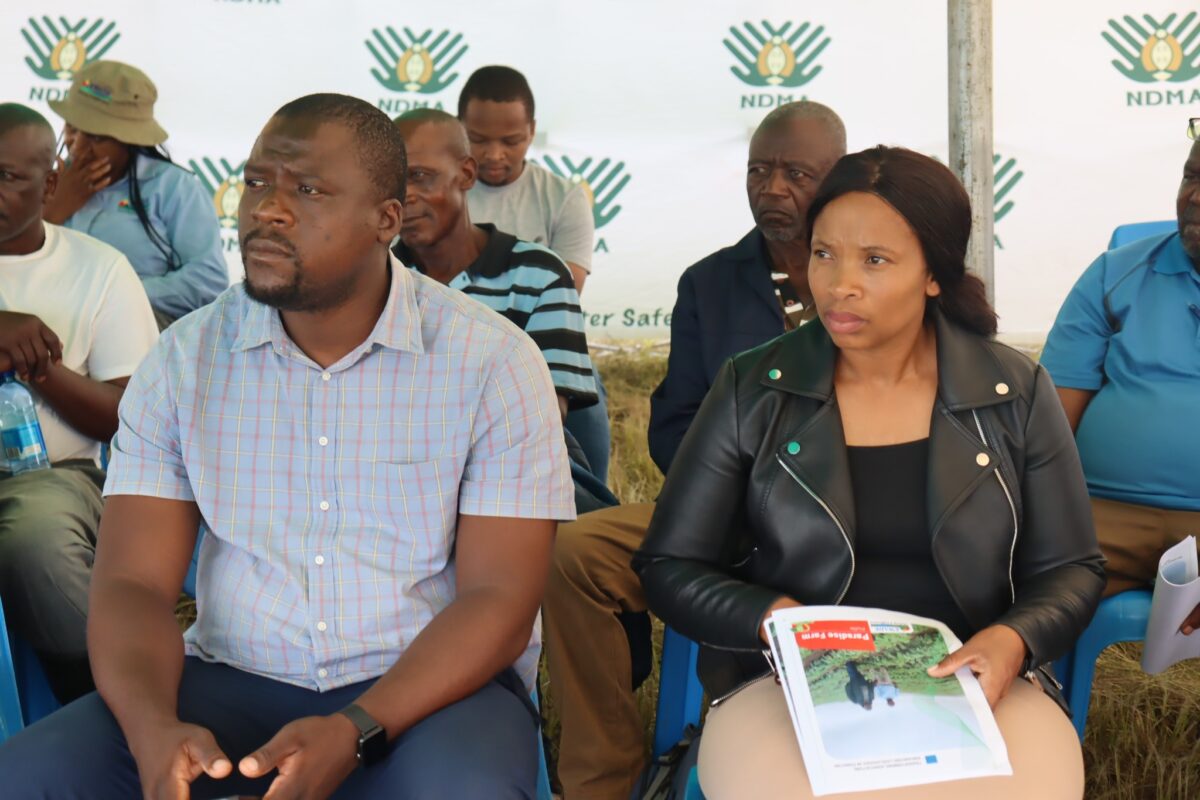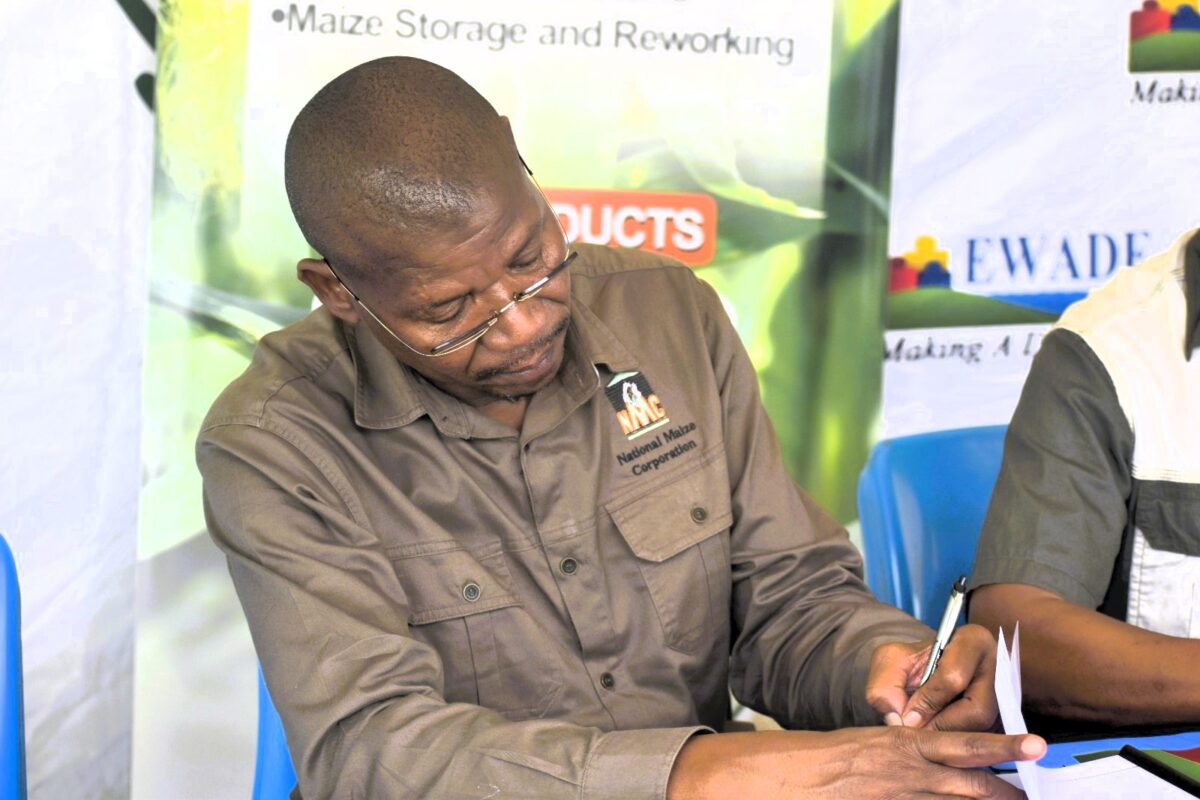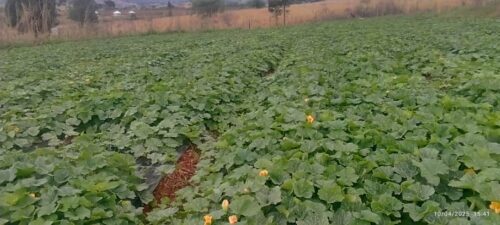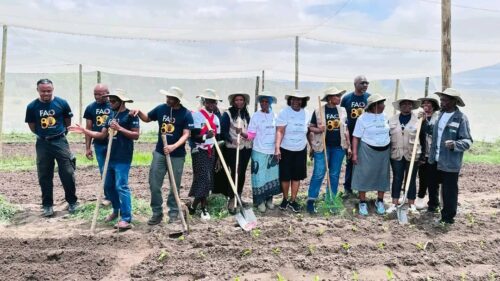BY SIKHULILE DLAMINI
Shiselweni – Eswatini has taken a bold and strategic step toward securing its food future with the launch of a landmark 50-hectare bean production project at Paradise Farm, under Shiselweni 1 Inkhundla. Spearheaded by the Eswatini Water and Agricultural Development Enterprise (EWADE), the National Disaster Management Agency (NDMA), and the National Maize Corporation (NMC), this initiative is backed by a newly signed Memorandum of Understanding (MoU) that places food sovereignty at the heart of national development.
This groundbreaking partnership aligns with the Ministry of Agriculture’s 2024–2028 Strategic Plan, which targets the cultivation of 10,000 hectares and the production of 10,000 metric tons of beans. By boosting local production, the project aims to improve food security, stimulate income generation, and build resilience against climate change. As EWADE CEO Dr. Samson Sithole stated at the signing of the MOU on 9 April 2025: “Together, we’re planting the seeds for a self-sustaining Eswatini, where no family is left behind when it comes to food on the table.”
The urgency behind this initiative cannot be overstated. According to NMC CEO Mavela Vilane, Eswatini required approximately 7,000 metric tons of beans last year—but managed to produce only 378 metric tons locally. This means over 90% of national consumption had to be met through imports, placing strain on the country’s economy and exposing the food system to external shocks.
The Paradise Farm project is designed to change that. With an investment of E630,715 from NDMA, the pilot aims to produce 60 metric tons of beans from the initial 50 hectares, translating to an estimated value of E1.6 million. This not only offsets import costs but channels revenue back into local communities, empowering farmers and strengthening Eswatini’s agricultural economy.
For NDMA, the project is more than a production effort—it’s a disaster prevention strategy. “Food insecurity is a slow-moving disaster that can devastate lives and livelihoods,” said NDMA CEO Victor Mahlalela. “Supporting this project is part of our long-term mitigation strategy. Instead of importing food aid, we’re helping grow it here, at home.” The agency aims to reach over 300,000 food-insecure citizens through locally sourced supplies generated from projects like this one.
A key strength of this initiative lies in its guaranteed market for farmers. NMC has committed to buying all produce that meets the required standards, giving farmers confidence to invest and expand their efforts. “This assurance transforms farming into a reliable, sustainable economic activity,” said Vilane. By reducing risk and uncertainty, NMC’s commitment is unlocking new opportunities across the agricultural value chain.
On the ground, EWADE is providing farmers with technical guidance, crop management training, and hands-on support throughout the production cycle. Dr. Sithole emphasized that the goal is not just one successful harvest, but a replicable and sustainable model. “We’re not just growing beans—we’re growing hope for Eswatini. It’s a model of what can be achieved when partnerships are built on trust and action.”
And the project’s reach is already expanding. Beyond Paradise Farm, 54 farmers across all four regions of Eswatini are now participating in the broader bean initiative, cultivating a combined 102 hectares with an anticipated total yield of 122 metric tons. This early success shows the potential for scaling up and transforming food security from a localized pilot into a national movement.
This MoU stands as a blueprint for what’s possible when public agencies collaborate with a shared vision. It moves Eswatini beyond dependence on imported staples and toward a resilient, self-sufficient agricultural system. With the groundwork now in place, this partnership is sowing the future of Eswatini’s food system—rooted in local soil, powered by local hands, and grown for the benefit of every Liswati.


